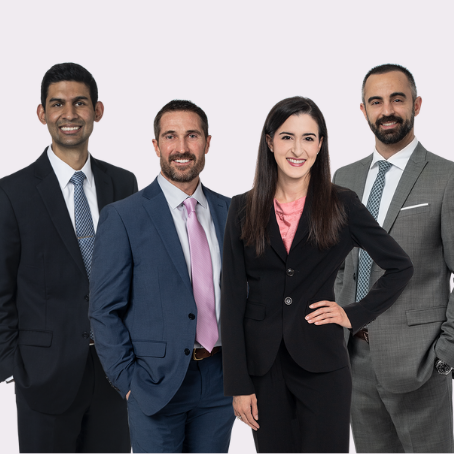Search
Search
It’s estimated that cataracts currently affect more than 20.5 million Americans over the age of 40. By age 65, over 90% of people in the U.S. will develop cataracts.
Cataracts represent a significant threat to the ocular health of countless Americans. Fortunately, treatment is available. At Kleiman Evangelista Eye Centers of Texas, our Dallas cataract surgeons have extensive experience in restoring patients’ vision via safe and effective traditional and laser-assisted cataract surgery, using the latest technology. We are able to offer our patients a choice of several premium lenses, any of which can improve your eyesight and allow you to live your life to the fullest.
As the only complete treatment for cataracts, cataract surgery is an outpatient procedure that can allow you to live the life you enjoy with ease and clarity. It is a safe procedure that can even reduce your dependence on corrective lenses such as glasses or contact lenses with advanced technology intraocular lens or artificial lens implants.
Talk to a Kleiman Evangelista surgeon about your lifestyle needs and vision goals to better understand your options.
Cataracts represent a significant threat to the ocular health of countless Americans. Fortunately, treatment is available. At Kleiman Evangelista Eye Centers of Texas, our Dallas cataract surgeons have extensive experience in restoring patients’ vision via safe and effective traditional and laser-assisted cataract surgery, using the latest technology. We are able to offer our patients a choice of several premium lenses, any of which can improve your eyesight and allow you to live your life to the fullest.
It’s estimated that cataracts currently affect more than 20.5 million Americans over the age of 40. By age 65, over 90% of people in the U.S. will develop cataracts.
As the only complete treatment for cataracts, cataract surgery is an outpatient procedure that can allow you to live the life you enjoy with ease and clarity. It is a safe procedure that can even reduce your dependence on corrective lenses such as glasses or contact lenses with advanced technology intraocular lens or artificial lens implants.
Talk to a Kleiman Evangelista surgeon about your lifestyle needs and vision goals to better understand your options.
Cindy had cataract surgery using the LenSx laser and the Alcon PanOptix lens with Dr. Ashish Singh. See called her surgery “a piece of cake.”
Just as the lenses in a pair of glasses can get smudged or pick up fingerprints, the lens in our eye becomes cloudy as we get older. This happens when the proteins that make up the lenses in our eyes slowly congeal into clumps, causing common cataract symptoms like blurry vision, sensitivity to bright light, and difficulty reading. Cataracts are a common, entirely normal part of aging. Though younger adults can develop cataracts — especially those who’ve experienced a serious eye injury or who have certain medical conditions like diabetes — older adults are far more likely to develop them.
Because cataracts develop slowly, the first small signs are easy for most people to overlook. Most people don’t seek treatment for cataracts until they begin to noticeably interfere with their vision. Besides blurry vision, other symptoms of cataracts include:
The team of experts at Kleiman Evangelista is highly trained and expertly skilled in using the latest cataract surgical procedures, equipment, and technology, including advanced cataract lens implants, laser-assisted cataract procedures with Femtosecond lasers, and ORA testing to ensure patient safety, comfort, and high-quality results.

I had the best experience during my cataract surgery with Kleiman Evangelista. The staff is incredible and very caring. They were so professional and made the experience very easy.





I love the entire staff. I've never experienced such efficient care from a medical facility before. Thank you for being so kind and restoring my eyesight.





I had cataract surgery in both eyes and am totally thrilled with the results. My surgeon was very helpful in explaining the process and choices available to me.





Once you and your surgeon decide that it’s time for cataract surgery, you will likely have lots of questions about the procedure itself. A typical cataract surgery involves a few simple steps and takes only about 30 minutes:
While having eye surgery can seem scary or intimidating, modern cataract surgery is minimally invasive, and your recovery will likely be shorter and less painful than you may expect. It typically takes about four weeks to fully recover from surgery, but you should notice your vision gradually becoming clearer and more focused as the days pass.
We know the decision to have cataract surgery is a big one. That’s why our team of eye care experts has the knowledge and experience to help you understand your options to allow you to make the decision that is best for you and have a successful surgery.
We also know that the outcomes you’re looking for following cataract surgery play an important role in the decision-making process. During your cataract consultation, your surgical counselor will help you navigate the process and you’ll leave our clinic with a customized care plan and complete quote, along with information for our team on how to make cataract surgery affordable for you. You’ll also leave knowing why Kleiman Evangelista’s cataract technology and patient care are second to none.


Yes. As we age, the lenses of our eyes grow thicker and become cloudy, forming cataracts.
Modern medicine is not yet able to reverse the development of cataracts or prevent them from forming. Once cataracts are present, the only way to regain clear vision is to undergo cataract surgery.
As cataracts progress, contacts and glasses are unable to fully compensate for the problem, and cataract removal is necessary to replace the natural lens of the eye and correct vision. The clouded lens is replaced with intraocular lenses.
Most cataract surgeries use a process called phacoemulsification, which allows your surgeon to remove the cataract through a microscopic incision. This removes the need for stitches or patches after the procedures.
There are several treatment options available with cataract surgery. With standard IOL, vision is clear but you may still need reading glasses or other assistance as was needed before cataracts. Premium intraocular lenses greatly reduce or eliminate the need for corrective eyewear. Consult with your eye doctor on your vision goals to find the best fit for you.
Cataract surgery is not painful. Cataract patients typically experience a little eye pressure during the procedure, but eye drops are given to numb the eye prior.